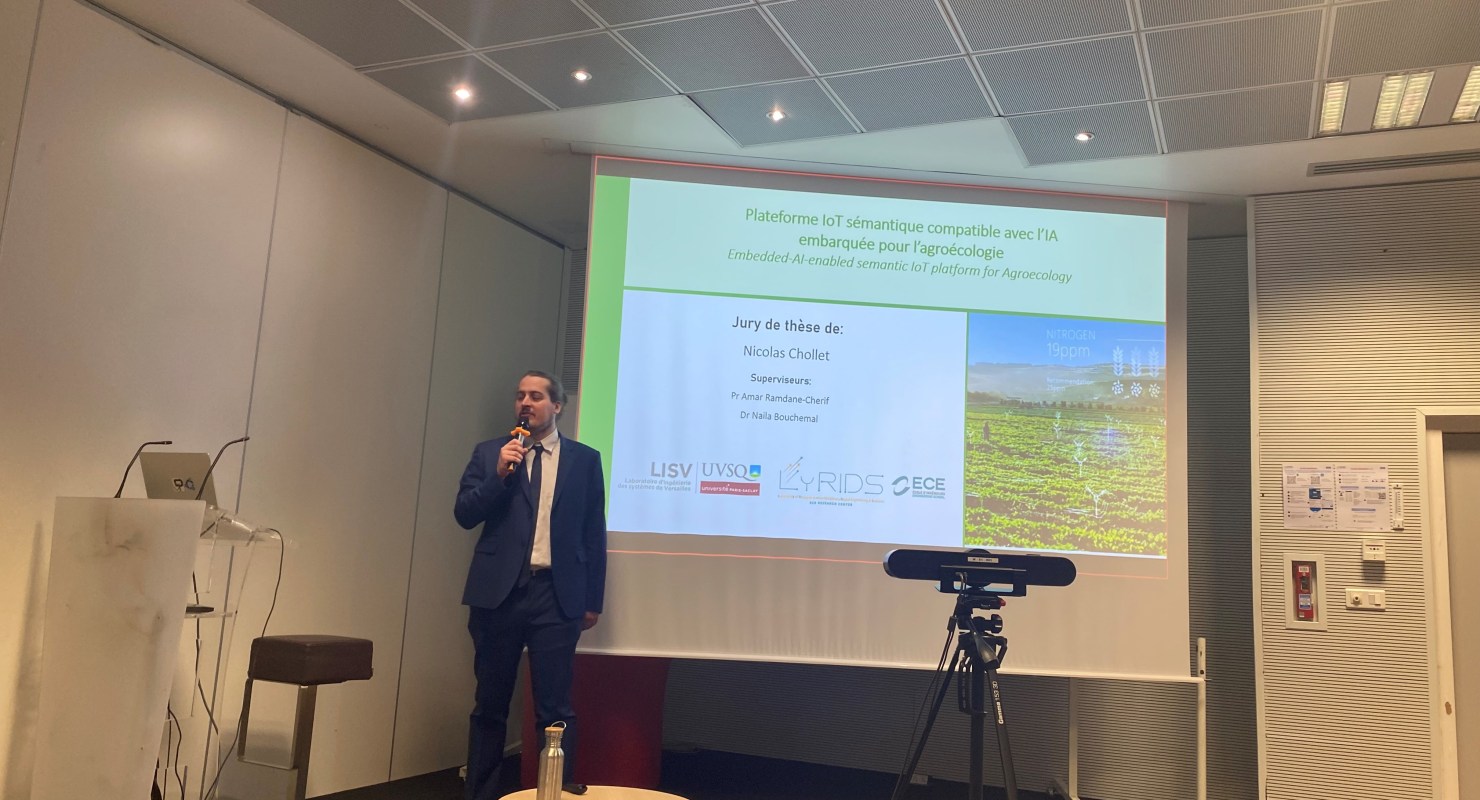The thesis defense of Nicolas CHOLLET entitled “Semantic IoT platform compatible with embedded AI for agroecology“co-directed by Prof. Amar RAMDANE-CHERIF of Université Paris-Saclay and Dr. Naila BOUCHEMAL Associate Professor at ECE, took place in Paris. 11/30/2023 at 2:30 p.m. on the ECE Eiffel campus at theamphi EM010.
Jury members
- Ousmane THIARE Rapporteur & Examiner, Professeur des universités, Habilité à Diriger des Recherches (HDR), Université Gaston Berger de Saint-Louis (UGB)
- Toufik AHMED Rapporteur & Examiner, University Professor, Laboratoire Bordelais de Recherche en Informatique (LaBRI)
- Sondes KHEMIRI-KALLEL Examiner, Senior Lecturer, Laboratoire DAVID – UVSQ
- Mikal ZIANE Examiner, HDR, Senior Lecturer, Laboratoire d’informatique de Sorbonne Université – LIP6
- Amar RAMDANE-CHERIF, Professor at Université Paris-Saclay, Thesis supervisor
- Naila BOUCHEMAL, Senior Lecturer, LyRIDS – ECE Paris, thesis co-director
- Assia SOUKANE Examiner, Senior Lecturer, LyRIDS – ECE Paris
- Hakima Chaouchi Examiner, Professor, Telecom Sud Paris
Summary of the thesis
Modern agriculture needs a profound transformation if it is to meet the challenges of sustainable development, while feeding the world’s growing population both qualitatively and quantitatively.
With this in mind, farmers are adopting “Smart Farming”. It’s a farming method that uses technology to improve the efficiency, productivity and sustainability of agricultural production. It encompasses the use of sensors, the Internet of Things (IoT), Artificial Intelligence (AI), data analysis, robotics and various other digital tools optimizing aspects such as soil management, irrigation, pest control and livestock management. The aim is to increase production while reducing resource consumption, minimizing waste and improving product quality. However, despite its advantages and successful deployment in various projects, smart farming is encountering limitations, particularly in the context of IoT.
Firstly, platforms must be able to perceive data in the environment, interpret it and make decisions to help manage farms. The volume, variety and velocity of this data, combined with the great diversity of objects and the advent of AI embedded in sensors, make it difficult to communicate over wireless agricultural networks. Secondly, research tends to focus on projects that address the problems of unsustainable conventional agriculture, and projects concerning small-scale farms based on agroecology are rare. In this context, this thesis explores the creation of an IoT platform composed of a network of semantic smart sensors, aiming to guide farmers in the transition and management of their farm to sustainable agriculture while minimizing human intervention.
Updated 2 January 2024

